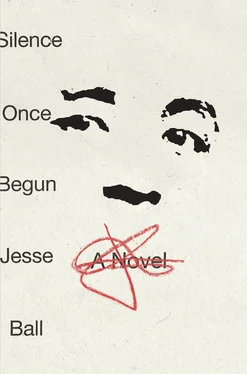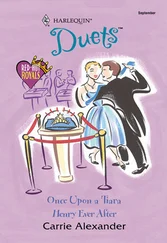
INT.
That was the nineteenth of October?
JIRO
It may have been. I don’t know.
INT.
But it was your first time inside the police station?
JIRO
Actually, no, I had been there once before, in connection with a friend from the mill. I had been visiting him, accompanying his wife to visit him. I think he had been fighting and was taken by the police.
INT.
Your friend?
JIRO
Yes, that was some years before that.
INT.
But on this visit …
JIRO
I saw Sotatsu. The police frisked me. I signed some papers, showed some identification, and was taken in. His cell was at the back. He was there, by himself, in a long cell with no window.
INT.
Did the police leave you alone to speak with him?
JIRO
No. One of the officers stayed within earshot. When Sotatsu saw me, he came to the edge of the cell and we looked at each other.
INT.
How did he look?
JIRO
Terrible. He was in jail. How do you think he looked?
INT.
What did you say?
JIRO
I didn’t say anything. I hadn’t come there to say anything. I just wanted to see him and I wanted him to know that I was thinking of him. I don’t know that I wanted to hear him say anything. I don’t know what he could have said that would have been worth hearing.
INT.
You had read about the matter in the newspaper?
JIRO
Yes, it was all over the newspaper. It had been for months already, all about the disappearances. Then, it became all about Sotatsu. He confessed to it all, even to parts that the newspapers hadn’t known anything about. That’s what made the police sure. They had thought there were eight disappearances, but he had confessed to eleven, and the other three had been entirely unreported. When the police went to check on those people, they were gone too.
INT.
And you didn’t ask him about it?
JIRO
I just said that. I saw him and left.
INT.
And you had other visits like that?
JIRO
I came every day. Some days they would let me in. Some days they wouldn’t. When they would it was always the same. I would approach the bars from one side, he from another. Neither one of us spoke. It was said there was a room where prisoners received visitors. I never saw that room.
Nineteenth of October, 1977. Oda Sotatsu. Inspector’s name unrecorded.
[ Int. note . Again, transcript of session recording, possibly altered or shoddily made. Original recording not heard.]

OFFICER 3
Mr. Oda, I have been informed about your case by the inspector you spoke to previously. He declared you unresponsive. It is his opinion that you should simply be run through the system. Flushed out of the system . Those were his exact words. Not to be vulgar, but you see what I mean. You are getting a particular reputation around here. I am going to explain something to you. In jail and in prison, even here at a police station, a local police station like this, there are things that people have done that make them what they are. Do you see? I was in the military, I went to school, I was in a training program, after that I joined the force, and I have worked my way up to being an inspector. That is what I am. Those things I did have made me what I am. You, on the other hand. You have done a crime. That is why you are here. What you are is a prisoner. That is what you are. However, what you are does not determine how you are treated, not the way you would think. What determines how you are treated in here is how you behave and how that behavior creates a reputation. I have a reputation for being good to the people I talk to. Then more people talk to me, then more people learn that I am good to talk to. That is my reputation. There are prisoners here who are treated exceptionally well. Some who have done worse things than others are treated better than the others. Do you know why that is?
ODA
(silent)
OFFICER 3
It is because they have learned how to behave and how to represent a particular reputation, to make it real. You are creating a reputation for yourself. Do you know that?
ODA
(silent)
OFFICER 3
There is a reason you sleep in a concrete cell with no bed, night after night. There is a reason that you get the food that no one else wants. Not all the prisoners get sprayed with a hose. Do you see what I mean? These officers are from good families. They grew up in your town. You may even know them. They have children. They treat people well. But when they see you, they think: here is an animal. Here is a person who wants nothing to do with being human, with being part of our community.
(Officer takes a deep breath, pauses.)
OFFICER 3
What we want is for you to tell us more. The information in the confession is not enough. It is very little. It is almost a useless document, other than where you are concerned. Where you are concerned, it is probably the end of you. But for others, it is useless. We need you to tell us more. Tell us more and we can help you. When I came here, today, and I was told that I would be the one to speak to you, I had an idea about who you were. There had been talk about you. Also, the newspapers. They have been running stories. Many things about you. So, I had an idea about what you would be like. But you aren’t like that. To me, you look like a regular guy, who ended up in a bad spot. You look like maybe you need to talk to someone. Like maybe all this can be explained somehow. I’m the guy you want to talk to. Think about it.
(Tape recorder clicks off.)
[ Int. note . To this visit, Mrs. Oda brought a toy that had been Sotatsu’s. It was a long stick painted blue with a red bell on the end. The bell was shaped like a flower. It did not make any noise, Mrs. Oda explained. It had originally been given to Sotatsu’s brother as a present, and he immediately broke it. Sotatsu had found the broken toy and began carrying it around all the time. It became his. He even claimed that he could hear the sound of the bell, although clearly the bell made no sound. Once, the family played a trick on him and hid little bells in their clothing. When he would move the stick, one of the family members would surreptitiously jingle a bell. This caused him great concern and difficulty, and both parents regretted having done it; so said Mrs. Oda. It also confirmed him in his belief that there truly was a sound, and even after their ruse had been explained to him, he disbelieved it.]

INT.
Your next visit to Sotatsu was some weeks later?
MRS. ODA
One week later. I brought him a blanket, but they wouldn’t let him have it. They said he had all the blankets he needed.
INT.
He was provided with blankets by the jail?
MRS. ODA
I do not believe so. What they were saying was …
INT.
That he shouldn’t have a blanket. Or that his sort shouldn’t …
MRS. ODA
I think so. They did let me stand there with the blanket and try to speak with him. I told him that we were all thinking of him, and I tried something that a friend of mine said.
INT.
What do you mean by that?
MRS. ODA
A friend of mine, an older woman whose opinion I respected greatly. She said to me to do something when I went and I did. I worked it out carefully and did it. What it was was this: I should tell him a memory I had, very clearly and just speak of it, let it all move there by itself without me or the sad time we were in, just by itself, the past moment. So, I had remembered a time that would be good to speak of, that I thought I could do …
Читать дальше













